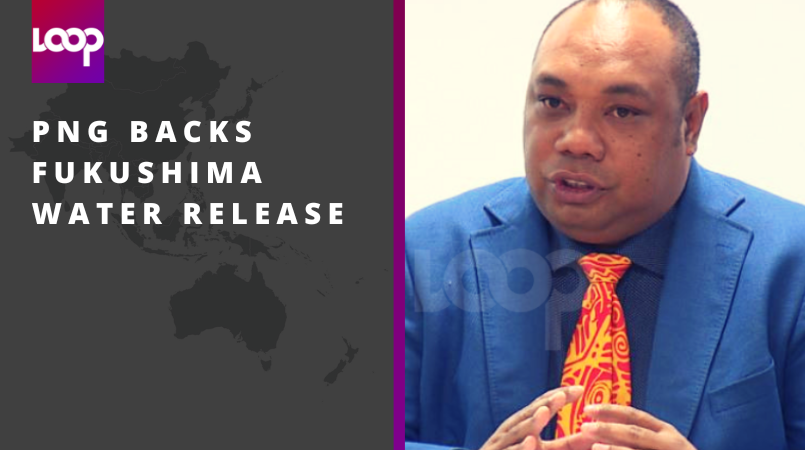
The Ministry of Fisheries & Marine Resources, under the leadership of Jelta Wong, MP, has announced that Papua New Guinea (PNG) supports the controlled release of treated water from the Fukushima Daiichi Nuclear Power Station in Japan.
The decision comes after the National Fisheries Authority reviewed the International Atomic Energy Agency (IAEA) Report of Safety Related Aspects of Handling ALPS Treated Water at TEPCO's Fukushima Daiichi Nuclear Power Station.
Prime Minister James Marape, has granted consent for the release following the publication of the IAEA report, which included an independent analysis of scientific data. Minister Wong stated that concerns were raised with Japan's Prime Minister and other agencies about the potential impact on regional fisheries, prompting the request for independent analysis.
Acknowledging the contentious nature of discussions on nuclear material, Minister Wong emphasized the need for caution and a comprehensive understanding of the facts. He praised the Government of Japan for taking the concerns of Pacific Island Nations seriously and ensuring the availability of full technical information for their consideration.
Initially, Papua New Guinea expressed opposition to the release of the treated water without independent analysis from third-party laboratories. However, Minister Wong expressed satisfaction with the technical information provided in the IAEA report and the Government of Japan's assurances. He stressed that the treated water met globally accepted standards and would not harm regional fisheries.
In accordance with Prime Minister Marape's stance, PNG has agreed to proceed with the controlled release on the condition of ongoing testing, independent analysis, and immediate cessation of further water release if the risk increases.
The continuous monitoring will include additional analysis reports on baseline environmental samples taken from the surrounding water area where the treated water will be released. The IAEA played a key role in the development of the report, overseeing the collection of treated water samples from the Advanced Liquid Processing System.
Third-party laboratories, including Spiez Laboratory (LS — Labor Spiez) from Switzerland, Institut de Radioprotection et de Sûreté Nucléaire (IRSN) from France, Los Alamos National Laboratory (LANL) from the United States of America, and Korea Institute of Nuclear Safety (KINS) from the Republic of Korea, conducted comparisons of the sample data.
Minister Wong emphasized that PNG will continue to engage in consultations with partners, including other Pacific Island Nations, Japan, and the IAEA, regarding this significant matter for the region.
He stressed the shared responsibility among nations to protect the resources of the oceans and seas, which serve as not only a source of livelihood but also as homes for current and future generations.
